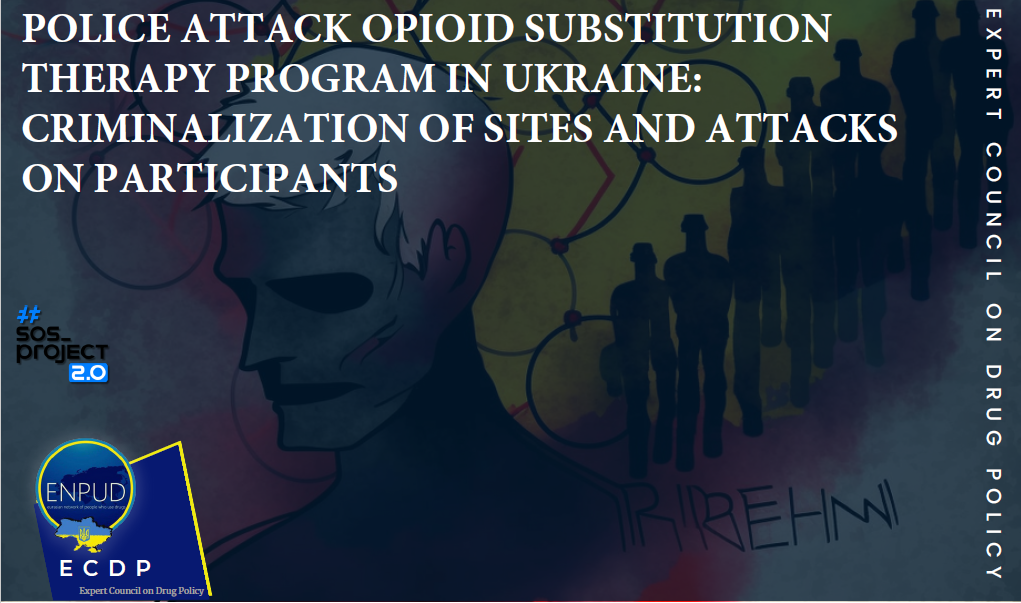In 2023, the Expert Council of the Eurasian Network of People Who Use Drugs (ENPUD) began documenting strategic cases among injection drug users in Eastern Europe and Central Asia. In Ukraine, four strategic cases were reported.
Based on the collected evidence, ENPUD experts prepared an analytical document on drug policy trends in the country. We invite you to read the community’s observations below.
In Ukraine, the opioid substitution therapy (OST) program, designed to help drug addicts and reduce the number of drug users in society, faces problems associated with aggressive police actions and the criminalization of treatment methods.
According to Program participants, the police are actively conducting operations to discredit points that dispense substitution therapy and also detain those who directly receive it. Such attacks from law enforcement agencies create mistrust among patients about the future of treatment.
The story of Yurii, a social worker who became a victim of these actions, clearly demonstrates the conflict between drug policy and health care.
While working as a social worker for an NGO, Yurii encountered an undercover police officer who posed as a cancer patient for three months. The policeman convinced Yurii to give him the drug, which led to his arrest and criminal charges.
Thus, Yurii, risking an eight-year prison sentence and illustrating the risks faced by medical and social workers participating in the substitution treatment program, became a symbol of the need for change in approaches to drug policy and the protection of human rights in the country.
According to the Expert Council on Drug Policy, a program designed to reduce the harm of drug addiction and improve the quality of life of patients is under threat due to several factors.
The main reasons include the following:
- public stereotypes and misunderstanding of replacement therapy,
- corruption among drug control,
- professional unethics,
- political motives,
- misperceptions of program participants, and
- incompetence in carrying out operations on the part of drug control.
These conditions lead to illegal practices, threaten the rights and safety of substitution treatment participants, undermine confidence in the healthcare system, and can lead to poor public health through the withholding of effective treatments. Policies of this kind only serve to increase stigma and discrimination against drug addicts, which leads to an increased risk of transmission of HIV and other infectious diseases.
To protect the rights and interests of substitution therapy patients, the Eurasian Network of People Who Use Drugs (ENPUD) has developed a concept that includes information work with the population and law enforcement officials about the legality and effectiveness of the program, monitoring the activities of drug control officers and other law enforcement agencies, providing legal support to patients, cooperation between government agencies, public organizations, and the medical field, as well as work to change legislation to strengthen the legal protection of patients.
In conclusion, we emphasize that advanced approaches to substitution therapy and drug policy changes are desirable and necessary to protect human rights and promote public health. The synergy between the efforts of all stakeholders, including government, the medical community, and civil society, can create an environment where the rights of every person are respected, and health and well-being are a priority. Striving for such a future is a moral imperative and the key to a healthier and more just society.
Read more in the ENPUD material “Police attack opioid substitution therapy program in Ukraine: criminalization of sites and attacks on participants.”


